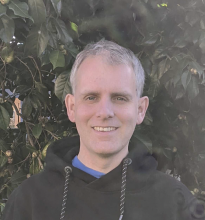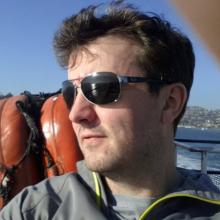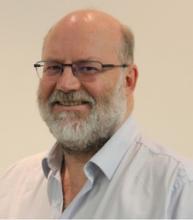Abstract
The climate crisis is upon us. The cloud has a bigger carbon footprint than the aviation industry, and this is forecast to grow rapidly over the coming years.
How do we as engineers react to this challenge, and drive the companies where we work to help reduce their carbon footprint?
In this talk you’ll learn the components of a tech carbon footprint. You’ll learn about how cloud providers are tackling the problem of carbon emissions, and what the future of the cloud might look like. Finally you’ll learn how to change the way you build applications to start having a positive climate impact right now.
Interview:
What's the focus of your work these days?
I work for a company called Supercritical in the climate space. We're a B2B company with a software product that customers can use to measure their carbon footprint, and to track their progress in reducing the carbon footprint. We also facilitate for them to buy carbon offsets for anything they can't reduce, tree planting or direct their capture carbon removal products. My role in that is that I'm a principal architect there, so I lead a team of developers working on building those products and designing the software solutions for that.
What's the motivation for your talk at QCon London 2023?
The talk is about understanding the role that the tech industry has in the climate crisis. For example, how big a footprint does the tech industry have? What innovations are happening to reduce that and help that? And I guess crucially, what each person in the audience can start to do about it in their own companies.
So, there are two main motivations for the talk. One is that this is a really big and complex area, and it's quite difficult to get good information on it. On one hand, you'll see lots of articles and TV programs claiming the tech sector has a huge climate impact and particularly the cloud has a big climate impact. But on the other hand, you go to the cloud providers' websites and you'll see that they're either running on 100% renewable energy or will be in the next couple of years. One motivation is to shed some light on that and help people understand what's actually going on there.
Secondly, from a more practical point of view, I think it's really difficult when you're working in a company you're interested in and helping with the problem, and it's really difficult to know where to start. So, I want to give some concrete examples which will help people know where they can actually get going.
How would you describe your main persona and target audience for this session?
That's probably a pretty wide percentage. If you're working in technology and you've got an interest in climate change, then you're the target audience really. It's not particular to a tech stack or a programming language. So yeah, the target audience basically is if you're interested in it and want to know more.
Is there anything specific that you'd like people to walk away with after watching your session?
Two things, I guess. One is feeling they have a good grasp of how and why the tech impacts climate change. And then the most important thing to walk away with is just at least one practical, achievable idea that they can suggest where they work to start reducing the carbon footprint of the software that they're building.
Speaker

Paul Lawson
Principal Architect @gosupercritical
Paul Lawson is Principal Architect at Supercritical. Supercritical is a climate startup, helping their customers to quickly and easily understand their carbon emissions, make a plan to reduce them, and to reach net zero.Prior to this he was Principal Architect at Songkick, a live music discovery platform with web and mobile apps serving over 19 million visitors per month.






